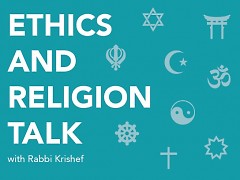"What is the difference between spiritual and psychological counseling?”
Father Kevin Niehoff, O.P., a Dominican priest who serves as Adjutant Judicial Vicar, Diocese of Grand Rapids, responds:
“Spiritual counseling focuses on assisting an individual on divine matters, or his/her journey to eternal life. Psychological counseling focuses on assisting an individual with his/hers interpersonal functioning. Although there is always overlap between these areas, there are times when more assistance is needed in one area over another. A member of the clergy who is not trained in the psychological disciplines is not competent to assist on that portion of the journey.
“A person who is considered clergy has typically studied and has experience in spiritual direction. Conversely, someone who is skilled in psychological counseling has spent many supervised hours not only studying but practicing this discipline. A member of the clergy may be trained in both the spiritual and psychological fields but is not necessarily trained in both.
“As a person trained in spiritual matters, I do not have the skills to help people who are struggling with their interpersonal relationships, although I have enough information to identify when the line is crossed between the psychological and the spiritual. When I know someone needs more assistance than I have the capacity to give, then I suggest the individual seek the proper support in their daily lives.”
Rev. Ray Lanning, a retired minister of the Reformed Presbyterian Church of North America, responds:
“The difference lies in training and expertise, as well as in approach, method, and aim. What does your counselor bring to the task? What is the nature of your problem, and what kind of help do you need?
“Presbyterian and Reformed pastors by training and calling are “wise scribes,” according to the Lord Jesus Christ: “Every scribe which is instructed unto the kingdom of heaven is like unto a man that is an householder, which bringeth forth out of his treasure things new and old” (Matthew 13:52). The scribes were Bible scholars, knowing its text down to smallest details. These “wise scribes” Christ speaks of were fully schooled in the doctrine and practice of His “gospel of the kingdom.” Such a combination of specialized knowledge is great treasure indeed.
“So Presbyterian ministers are equipped to expound and apply the teachings of God’s Word. They do so with the endorsement and supervision of the church. There is usually little in their training that qualifies them to practice as psychologists or physicians. That doesn’t mean they have nothing of value to offer to people in need. Your pastor should be able to tell you what the Bible says about your situation, and what the truth of the gospel implies for your conduct.
“But there are medical and psychological conditions that cloud the mind, impair the judgment, and play havoc with the emotions. In such cases, it is useless to offer the instruction of Scripture or the guidance of the gospel. Such persons are not in a position to profit from such counsel unless these other problems are diagnosed and treated.”
Fred Stella, the Pracharak (Outreach Minister) for the West Michigan Hindu Temple, responds:
“I suspect my colleagues will agree that sometimes the line separating one from the other can be quite thin. If this were not the case you wouldn’t see so many therapists incorporating elements of spirituality in their approaches. Religious and spiritual practices, it has been clearly shown, can encourage a healthy psyche. Things like ritual, fellowship, meditation, communal projects of altruism can be recommended to those who are relatively healthy to increase their enjoyment of life. But there are definite symptoms I would look for in a counseling session that indicate another level of care is needed. A good spiritual advisor should be able to detect behavior that might be coming from realms beyond his or her field of study and expertise. In many cases there is no reason why psychological counseling and spiritual care cannot be concurrent. An exception would be when religion itself is the problem.”
My response:
Spiritual counseling comes from the perspective of moral development, believing that the flaws in the human being are to a large extent created and exacerbated by moral lapses.
Psychological counseling comes from the perspective that difficulty in coping with daily activities or illnesses like depression come from undeveloped or mis-developed neural pathways creating unhealthy patterns of behavior, simple neurological differences which lead to non-typical behavior, or a chemical imbalance in the brain.
The two approaches overlap, but a trained clergy person recognizes when the issues go beyond moral deficiencies, and refer to a trained psychological professional.
This column answers questions of Ethics and Religion by submitting them to a multi-faith panel of spiritual leaders in the Grand Rapids area. We’d love to hear about the ordinary ethical questions that come up on the course of your day as well as any questions of religion that you’ve wondered about. Tell us how you resolved an ethical dilemma and see how members of the Ethics and Religion Talk panel would have handled the same situation. Please send your questions to [email protected].
The Rapidian, a program of the 501(c)3 nonprofit Community Media Center, relies on the community’s support to help cover the cost of training reporters and publishing content.
We need your help.
If each of our readers and content creators who values this community platform help support its creation and maintenance, The Rapidian can continue to educate and facilitate a conversation around issues for years to come.
Please support The Rapidian and make a contribution today.
